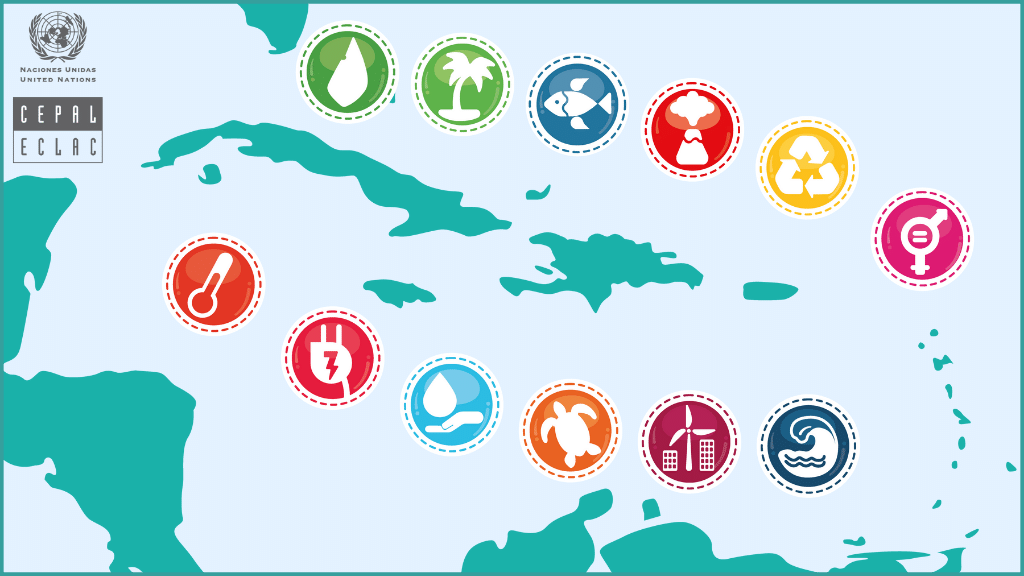Belize: National workshop on generating climate change and disaster indicators for policy decision-making
Work area(s)
Teaser
The Caribbean region is acutely threatened by climate change, particularly the Small Island Developing States (SIDS). Belize is no exception. The country is situated in the tropical cyclone belts and is directly exposed to the forces of the oceans. And as a small geographical area, disasters might affect vast proportions of the country. Availability of quality statistics and indicators are crucial to effectively respond to the effects of climate change and build resilience.
Event information

Date
9 - 11 Nov 2022, 06:00 - 12:00Event type
Background
The Caribbean region is acutely threatened by climate change, particularly the Small Island Developing States (SIDS). Belize is no exception. The country is situated in the tropical cyclone belts and is directly exposed to the forces of the oceans. And as a small geographical area, disasters might affect vast proportions of the country. Availability of quality statistics and indicators are crucial to effectively respond to the effects of climate change and build resilience.
In this context, the ECLAC´s Statistics Division, sub regional Office for the Caribbean, in collaboration with the Sustainable Development and Human Settlements Division, are joining efforts to enhance the production and use of key indicators and metrics to monitor and adapt to the effects of climate change and strengthen Environmental Information Systems (EIS). These efforts, supported by the Development Account of the United Nations, aim to advance the environmental pillar of the 2030 Agenda and improve policy coherence in the implementation of the Escazú Agreement, the Revised St. George´s Declaration (SGD 2040), the SAMOA Pathway, the Paris Agreement, and the Sendai Framework.
Objectives
- Train the participants to build selected environment, climate change and disaster indicators and its metadata.
- Identify data and capacity gaps to develop an Environmental Information System (EIS) and build a regional resilience platform.
- Have a better understanding of how geospatial data can enhance the use of environment, climate change and disaster indicators for effective decision making.
Expected outcomes
- At least five prioritized climate change and disasters indicator and its metadata are available at the end of the workshop.
- A selection of prioritized indicators from the Global Set of Climate Change Indicators are identified for Belize.
- Follow up steps to build further selected climate change and disasters indicators are agreed with the national focal points from the Statistical Institute of Belize and the Ministry of Sustainable Development, Climate Change & Disaster Risk Management.
Programme of work
Inaugural session and introduction to the workshop
Welcome remarks
▪ Edgar Ek, Ministry of Sustainable Development, Climate Change and Disaster Risk Management
▪ Diana Castillo-Trejo, Statistical Institute of Belize
▪ Faustina Wiggins, CARICOM Secretariat
▪ Reena Shah, UNSD
▪ Rolando Ocampo, ECLAC
Presentation(s)
Presentation of the participants, introduction and objectives of the workshop
Global and regional enabling frameworks and strategies
Presentation(s)
Regional work on environment statistics as a guiding force to improve availability of climate change and disasters statistics and indicators
Global Set of Climate Change Statistics and Indicators: a tool to identify multi-purpose indicators on climate change
The Escazú Agreement: a pathway to developing an Environmental Information System (EIS)
Environment, climate change and disasters indicators for Belize needs and priorities
Presentation(s)
National policies and plans where environment, climate change and disaster indicators are required
Environment Statistics Self-Assessment Tool in Belize: where do we stand and the way forward?
Presentation(s)
Environment Statistics Self-Assessment Tool (ESSAT) - Part II: Statistics level assessment: Belize results
Prioritized set of environment statistics for Belize
Tools and guides to produce environment, climate change and disaster statistics and indicators
Presentation(s)
From data to environment, climate change and disaster statistics and indicators and statistical classifications and typologies
The geospatial dimension of environment, climate change and disaster statistics and indicators
ECLAC´s methodology to produce environment, climate change and disasters indicators
How to develop a methodological sheet and examples of methodological sheets
Other sources of environmental information
Presentation(s)
Statistical Conference of the Americas working groups disaster related statistics
Use of environmental administrative records
Open data from the private sector (Planet and Maxar)
Towards an environmental information system in Belize
Presentation(s)
Recommendations to establish an Environmental Information System
Organizing institution
Economic Commission for Latin America and the Caribbean (ECLAC)
- https://www.cepal.org
- 56 222100000
Statistical Institute of Belize
- https://sib.org.bz/
- +(501) 822-2207/822-2352 | +(501) 613-8
Ministry of Sustainable Development, Climate Change and Disaster Risk Management of Belize
- https://sustainabledevelopment.gov.bz/
- +501-822-0160